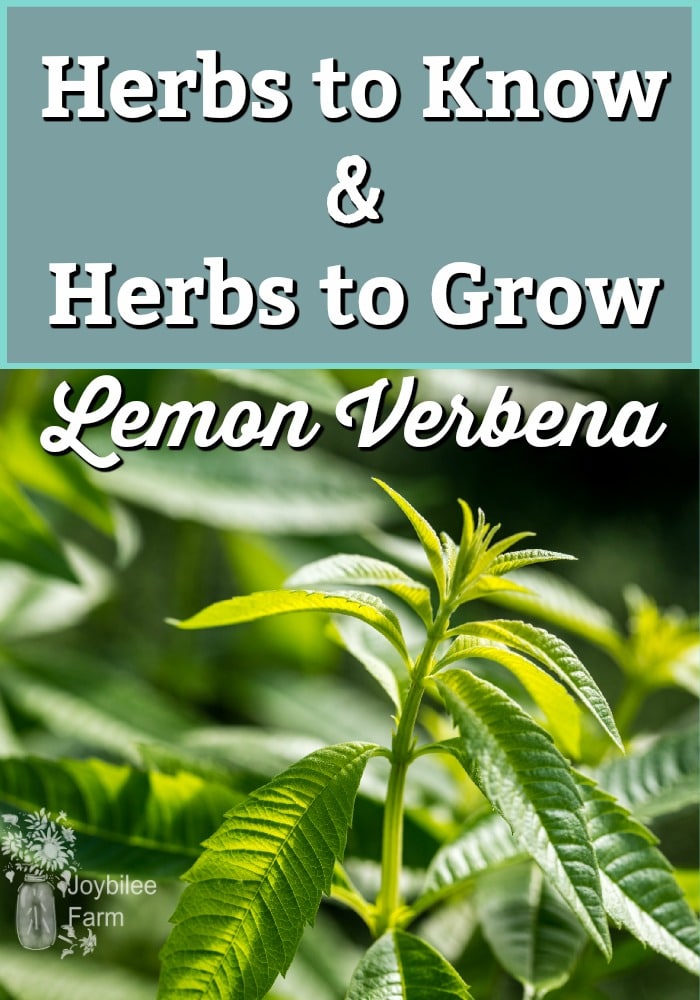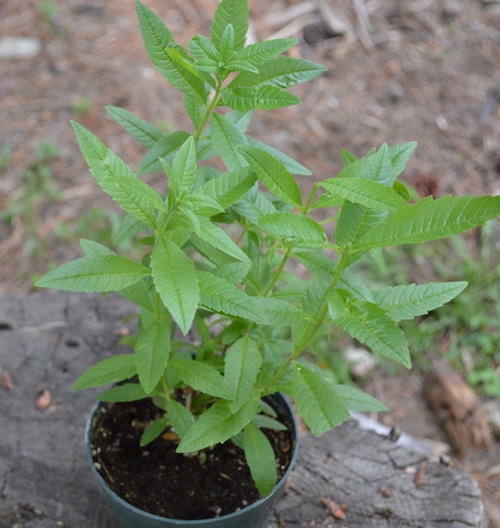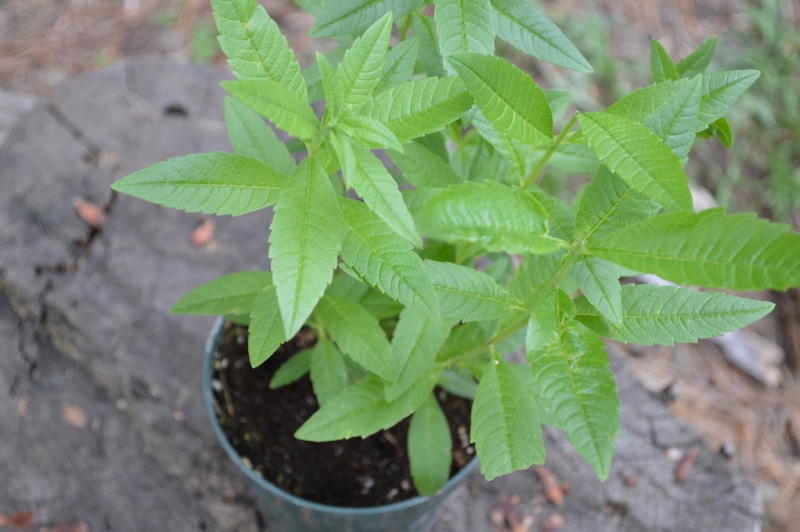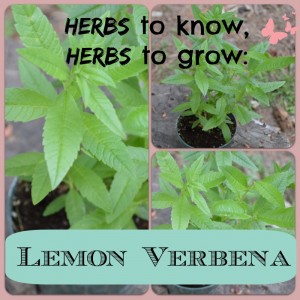Lemon Verbena is a great herb to grow for cooking, aromatherapy, tea and herbal remedies. Learn about its beneficial effects and why you need to start growing some for your home.

Lemon Verbena
Just brushing past a lemon verbena makes you smile. The scent is like lemon popsicles on a hot, sticky July day, cool, refreshing, sweet, and invigorating. Although lemon verbena grows in zone 8 to 10, I successfully overwintered a bush in Mission, BC in zone 7b, inside an unheated greenhouse. The perennial shrub reached 6 feet in height and was cut back every year. In zone 3, where I currently garden, it is a container plant that spends the summers inside a pot in the greenhouse and comes in for the winter. I buy it as a bedding herb. Lemon Verbena seed is sterile so it must be propagated by cuttings. Thankfully, it roots readily.
If you are in zone 9 or 10, you can grow Verbena in your garden. If you are colder than that, try container growing it and bringing it indoors before the first frost in your location. And once the leaves drop, don’t water it much. Resume watering when you see the first leaf buds of spring.

What does Lemon Verbena look like?
Aloysia triphylla has glossy narrow, lance-shaped leaves, opposite each other on an upright stem, alternating in pairs up the stem. It bears inconspicuous white-pink flowers in joints where the leaf meets the stem and a spray of small white flowers at the top of the plant. The leaves are highly scented. If allowed to overwinter in a mild climate, the shrub reaches heights of 4 to 6 feet and will need to be pruned back to keep from becoming scraggly.
In colder climates, it is grown in containers and overwintered indoors. It will lose its leaves in the fall and needs only very scant watering during the winter. But the leaves will come back when it is put outdoors in the spring.
Where did Lemon Verbena come from?
It is native to Chile, and Argentina, and was brought to Europe by the Spanish Conquistadors in the 17th century. Due to its late introduction to the Materia Medica of Western herbalism, it was not taken seriously as a medicinal herb, and today is used mainly as a tea herb. This is a shame because Lemon Verbena has marked carminative and antispasmodic and anti-inflammatory properties that aid digestion and have a protective effect on the colon. It is also an anti-depressant and sharpens concentration, while at the same time it is calming and tonic to the nervous system. Its cooling lemon scent also keeps flies and mosquitoes away.

Plant a pot of Lemon Verbena by the door and keep out mosquitoes
Plant a large container of Lemon Verbena near the entrance to your home, so that you brush past it, as you enter the house. The scent will keep mosquitoes out of your house.
In the 19th century, Victorian ladies put a sprig of lemon verbena in their pocket-handkerchiefs to sniff on a hot day, and refresh themselves. The leaves steeped in sun tea are refreshing, offering their sweet lemon flavour to the tea.
Use Lemon Verbena in cooking or tea
Today it is used in cooking for its fresh lemon taste. It is added to alcoholic beverages and made into tea. Recently scientists are studying lemon verbena for its anti-inflammatory, anti-spasmodic, and anti-oxidant benefits. Perhaps it’s time to love this refreshing plant more and plant a pot of lemon verbena near your back door.
Use Lemon Verbena medicinally
Lemon Verbena is a digestive tonic, calming, mild expectorant, sleep aid for insomnia due to general tension. It reduces fever, relieves joint pain, and it’s anti-inflammatory.
The essential oil is used in aromatherapy. It quickens the brain and sharpens concentration. The cool and refreshing fragrance of lemon verbena increases energy, relieves fatigue, and overcomes feelings of apathy, disinterest and listlessness.
The tea is used as a tonic for the nervous system. It relieves spasms of the digestive tract and aids digestion.
It is being studied for the relief of joint pain and inflammation.
Grab the free download
Add the Lemon Verbena Mongraph to your herbal notebook.
Download the Lemon Verbena Monograph (pdf) and learn about the antispasmodic, carminative, anti-inflammatory, sedative, and tonic effects of lemon verbena and how you can make better use of it in your homestead medicine bag.
Dig deeper and join me
Want to learn more about using herbs at home for your family’s health and well-being? Join me at the Herbal Academy of New England. The Introductory Herbal Course starts soon. If you’re ready for a bit more in-depth work on herbs and human anatomy, join me in the Intermediate Herbal Course — 10 units over 10 months, to gain a strong foundation in the use of herbs, the philosophy behind the different schools of herbal practice, and how herbs interact with the human body. I’m loving the course and I’m sure you’ll really get a lot out of it, too.
References:
Annies Remedies: http://www.anniesremedy.com/herb_detail348.php
Caturla N, Funes L, Pérez-Fons L, Micol V. “A randomized, double-blinded, placebo-controlled study of the effect of a combination of lemon verbena extract and fish oil omega-3 fatty acid on joint management.” Journal Alternative and Complementary Medicine. 2011 Nov;17(11):1051-63. doi: 10.1089/acm.2010.0410.
Malekirad, Ali Akbar; Hosseini, Nasser; Bayrami, Mansour; Hashemi, Touraj; Rahzani, Kobra; Abdollahi, Mohammad “Benefit of Lemon Verbena in Healthy Subjects; Targeting Diseases Associated with Oxidative Stress” Asian Journal of Animal & Veterinary Advances; Sep2011, Vol. 6 Issue 9, p953
Purdue Guide to Medicinal and Aromatic Plants: http://www.hort.purdue.edu/newcrop/med-aro/factsheets/LEMON_VERBENA.html




Hi. I am Farhad, I, m happy see your site, I have farms lemon verbena,
One of my absolute, all time favorite herbs! Thank you for sharing at Green Thumb Thursday and we hope you’ll be back today!